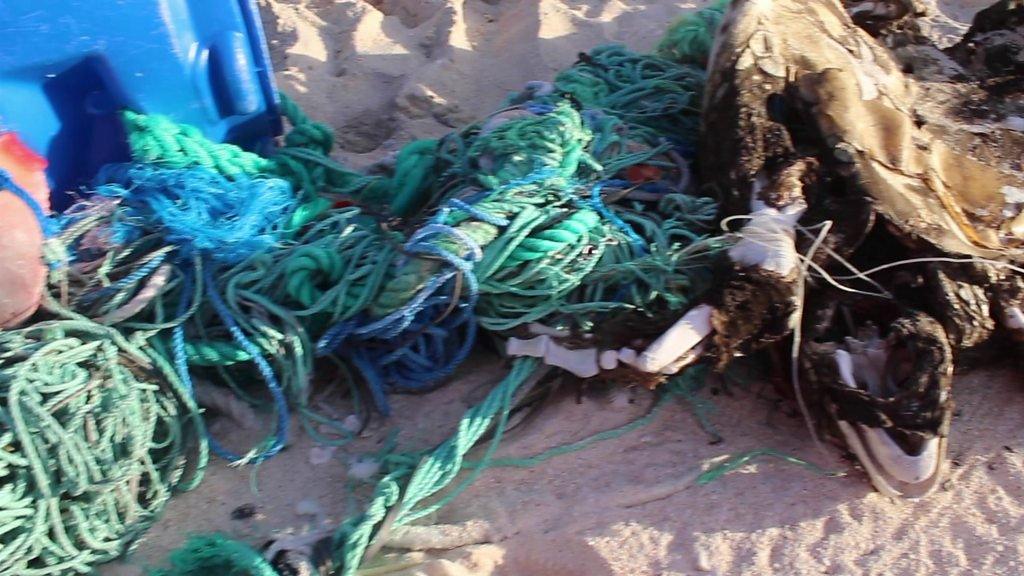Plastic: It's in the sea, in the sky, and on the land
- Published
- comments
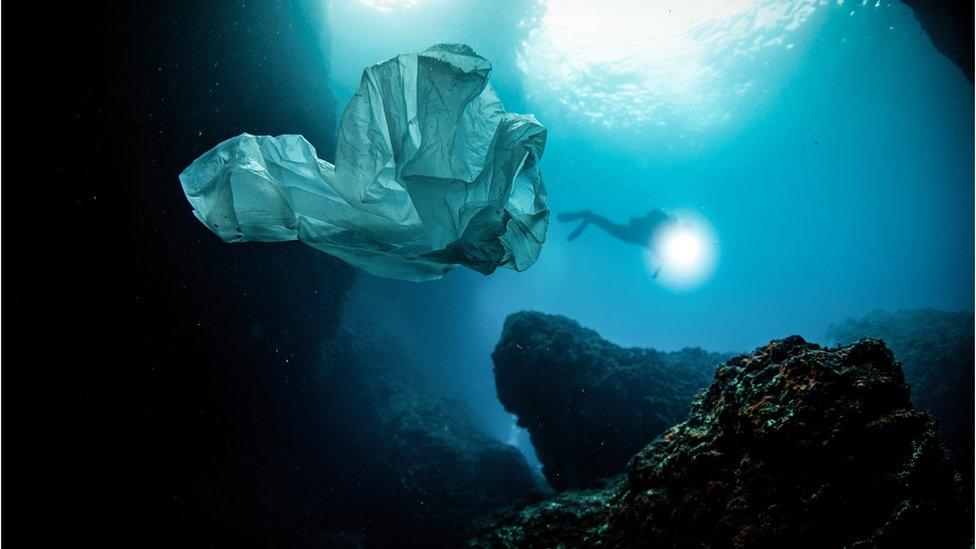
It's thought that more than eight million tonnes of plastic enters the world's oceans each year and most of that escapes from land.
It can be blown into the sea from ships and beaches, or carried there by river. Some also gets flushed down the toilet.
But thankfully old-fashioned devices called plankton recorders are going some way to help scientists trying to find a way to tackle this problem.
The old-fashioned metal boxes that have been dragged around the ocean since 1931, have accidentally created a record of the history of ocean plastic.
WATCH: How is metal box helping save our oceans?
One of the first items to be recorded was a plastic bag off the coast of Ireland in 1965 - which researchers say, could be the first marine plastic litter found.
These records also show how much more plastic has been found in the ocean in recent decades.
It means that scientists now have more information about the source of the plastics and are hoping using this data can help make plans to tackle the problem.
How does plastic harm our oceans?
Marine animals can become entangled in larger plastics - particularly cord, nets and ropes.
Much smaller microplastics - pieces of plastic waste that include plastic fragments and fibre, often the product of larger items breaking down - have been found in the stomachs of birds and animals, as well as in fish.
WATCH: Martin finds out why plastic is a problem (Pictures from Greenpeace, Caroline Power and Blue Planet II/BBC iPlayer)
A BBC documentary crew last year found seabirds on a remote island had died with their stomachs filled with plastic fragments.
It's not just rubbish floating on the surface that's a problem either. Scientists have found plastic in the stomachs of the deepest marine organisms known to humans., who live at the very bottom of the ocean.
Now scientists are also concerned that microplastics could be carried in the air, as well as by the sea.
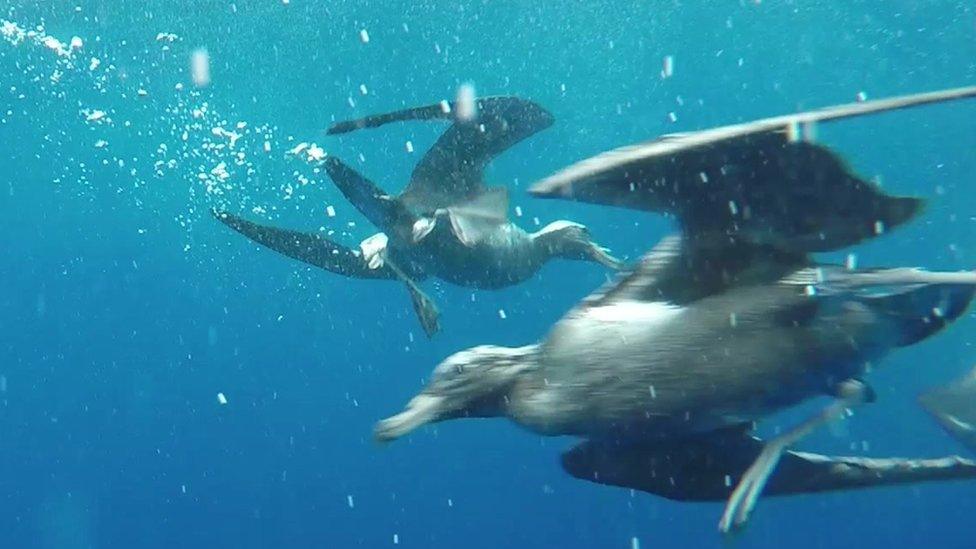
The seabirds dive underwater for food, but often eat pieces of plastic
Plastic in the air
Researchers at the University of Strathclyde in Glasgow and EcoLab in France have found microplastics in a remote area of the Pyrenees mountains between France and Spain.
There aren't many people in this region, which suggests the particles were transported by wind, through the air, from more populated areas at least 59 miles away (95 kilometres).
Some of the fibres found were so small that they could be breathed in by people or animals.
Plastic on the land
More than two million pieces of litter are dropped in the UK every day, and around 350 million drinks cans are picked up from the ground every year.
Unsurprisingly, this has an impact on the plants and animals.
In a recent study, Keep Britain Tidy estimated that 2.9 million small mammals - like shrews, hedgehogs and voles - are dying each year after getting stuck in bottles and cans thrown onto grassland and parks.
Plastic problem: What's being done?
WATCH: Meet the plastic-busting Eco Crew (Pictures from Greenpeace, Caroline Power and Blue Planet II/BBC iPlayer)
There are lots of groups trying to help tackle plastic pollution and cut the amount of plastic we use.
We now pay 5p for plastic carrier bags and the number we use has dropped by over 80%. In other countries, single use plastic bags have been banned altogether.
Certain cafes and restaurants are only giving out straws if people ask for them. Some are also swapping them for paper ones
A group of nurseries has stopped using glitter
Plastic microbeads have been banned from products like face scrubs and toothpaste.
And supermarkets are looking at making changes too, including making their packaging easier to recycle or even plastic free.
The Government's promising to cut all avoidable plastic waste over the next 25 years.
WATCH: Lana and Thomas from Norway explain how the Deposit Return Scheme works
Countries such as Germany, Norway and Sweden have a Deposit Return Scheme and it helps those countries recycle over 90% of their plastic bottles.
This means you pay a bit more for a drink in a plastic bottle, but you get that money back when you return the bottle to be recycled.
There are plans in Scotland for a Deposit Return Scheme but other parts of the UK aren't convinced.
In the UK, just 57% of bottles are collected to be recycled.
- Published17 March 2020
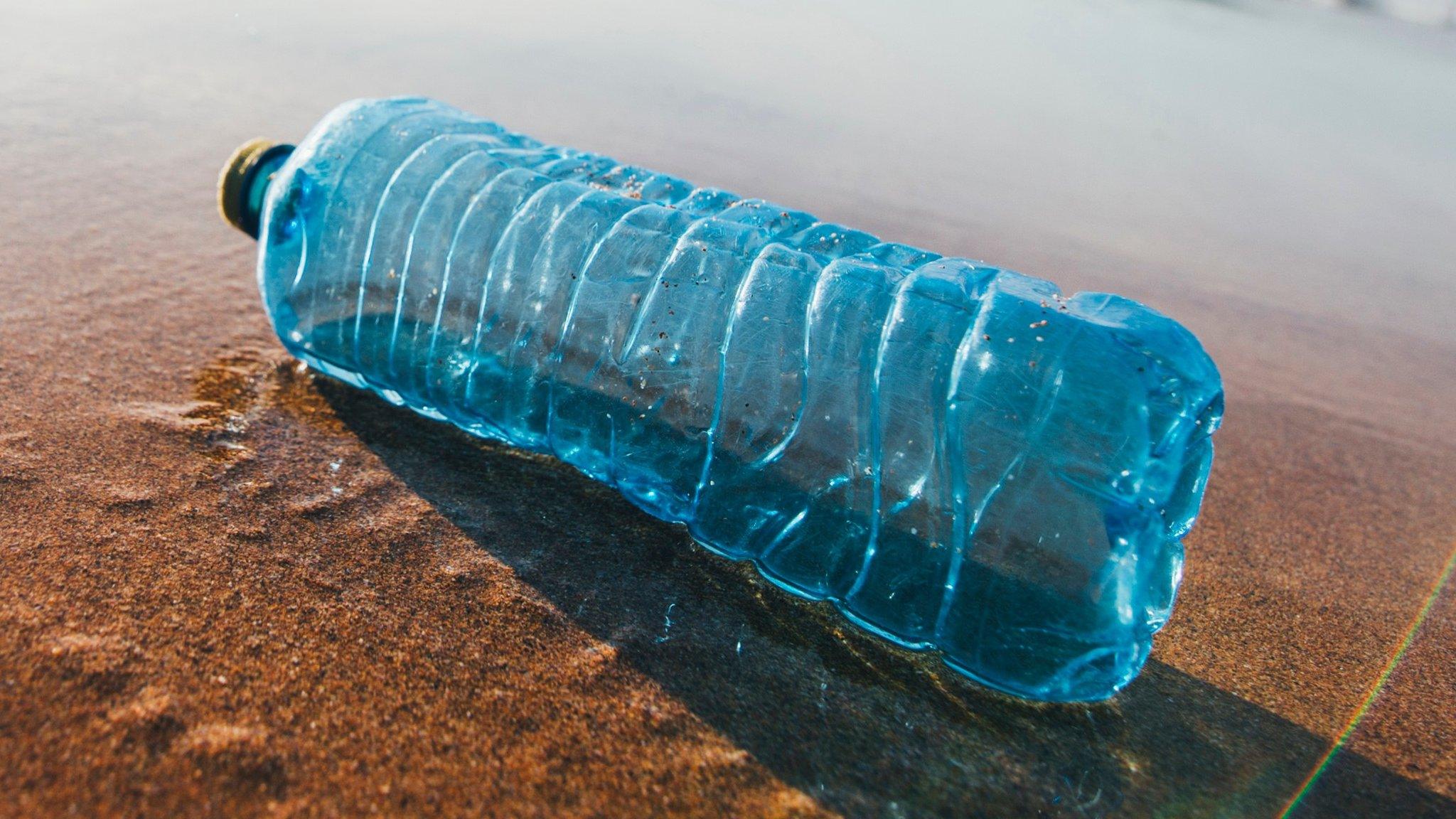
- Published23 June 2018
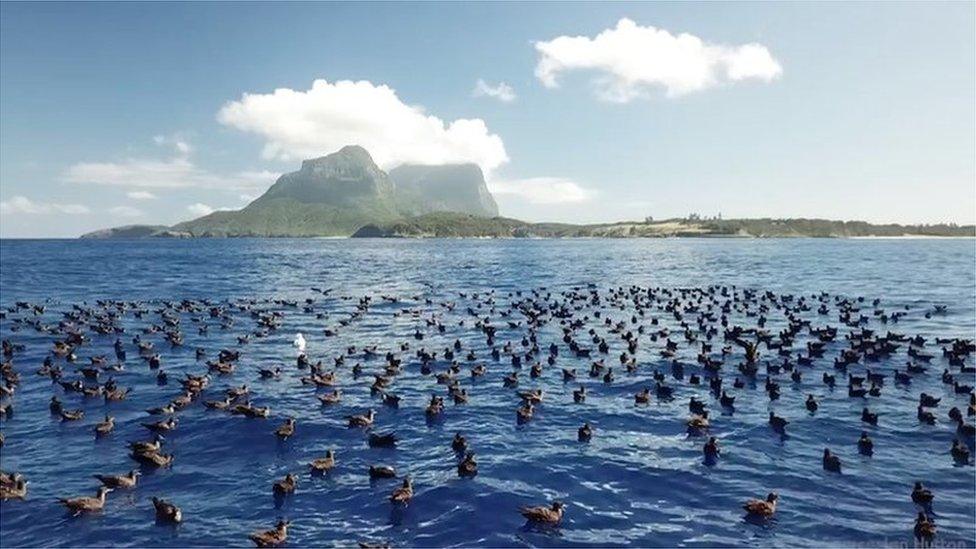
- Published8 September 2018
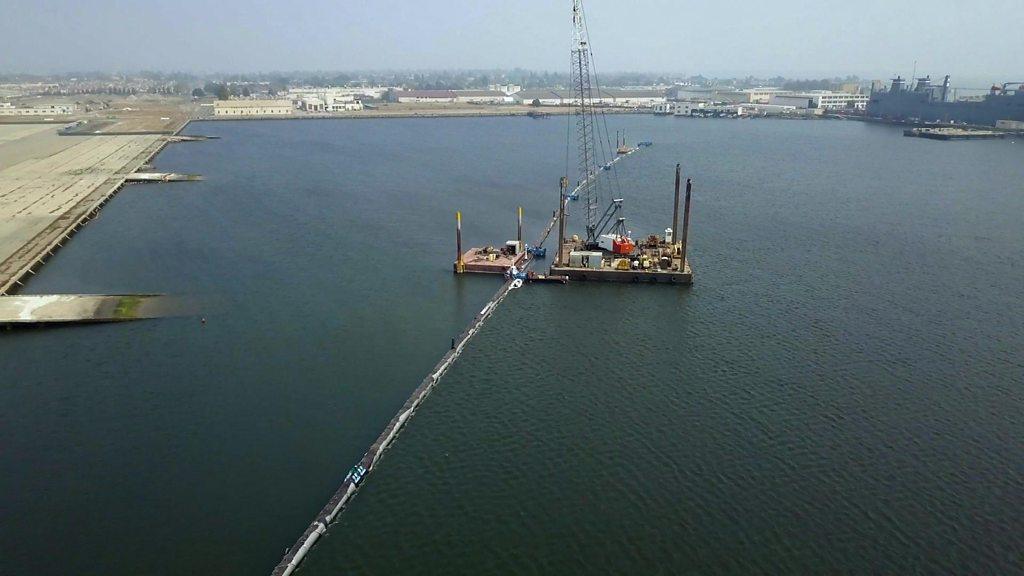
- Published24 May 2017
